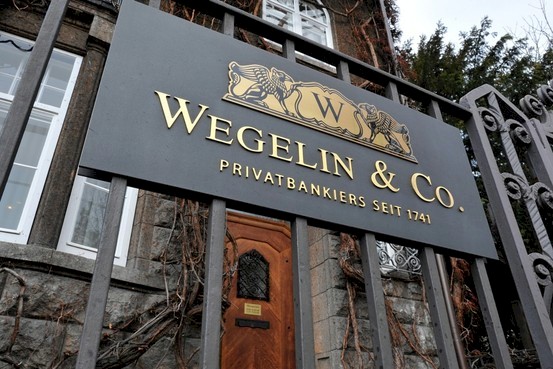And not only watches: what else is attractive Switzerland for wealthy immigrants.
A one-time tax system is one of the key features of Switzerland that is so attractive to wealthy immigrants. How does it work and to whom (I mean customers) does it apply?
If you look at the modern world through the eyes of a wealthy citizen, then from the point of view of economics and tax regulation there are not many reasons for joy. The constant increase in taxes, the introduction of financial transparency rules and the exchange of banking information, continuous inflation are just some of the reasons for concern. In addition, the media stubbornly seek to disclose confidential information about the financial condition of individuals and make it public.
What should the capital owner do in this situation? The choice is small - to create a “reserve airfield” in a country that is characterized by stability, predictability, confidentiality and, of course, a moderate level of taxation. Switzerland is one of the few countries that, albeit not aloof from global changes, nevertheless strives to maintain its traditional attractiveness for wealthy people from all over the world.
One of its key advantages lies in the administrative structure. Switzerland consists of 26 cantons, each of which is responsible for its own budget and tax policy. As a result, a stable "tax competition" remains between the cantons. It is also important that, in contrast to neighboring countries, the ratio of public debt to GDP in Switzerland is constantly decreasing and now amounts to less than 30%. And this is a kind of guarantee that the country has every chance to maintain its tax attractiveness for the coming years.
The Russian business elite has long chosen Switzerland. Everyone can find members of the Forbes list here. According to the international law firm Caputo & Partners, one of the beneficiaries of the tax regime in the canton of Geneva is Gennady Timchenko. Billionaire Vasily Anisimov owns a business in the canton of Zug. Viktor Vekselberg and Swiss passport holder Dmitry Rybolovlev are also tax residents here.
Tax once a year.
Obtaining a residence permit in Switzerland is a fairly standardized procedure. It is based on an agreement between the applicant and the authorities of the canton on the amount of a one-time tax, which will have to go to the state treasury annually. People without Swiss citizenship who apply for the first time or after ten years of absence in the country can count on this procedure. Another requirement is that a person should not engage in entrepreneurial or any commercial activity related to income generation in Switzerland. The exception is private wealth management. However, it is very difficult to determine where money management ends and income-generating activities begin. Therefore, it is recommended to seek an agreed decision with the tax administrations of the canton before starting any activity that is somehow related to taxation in Switzerland.
A one-time tax is currently available in most cantons, but is most common in Vaud, Valais, Geneva and Zug. One of the most favorable tax regimes is offered in the canton of Uri. In the cantons of Appenzell-Ausserroden, Basel-Terrain, Basel-Stadt, Schaffhausen and Zurich, the system of one-time taxation is possible only in part of federal taxes, but is not applicable for local (cantonal) and municipal deductions. However, it is expected that this contradiction will be resolved in the near future.
If summarize the results of the analysis of the “minimum tax payments” adopted in various cantons and which are sufficient for settling immigration formalities, we can state that an agreement with the authorities can be reached if the taxpayer - a native of a third country - agrees to part with an amount of at least 250 000 Swiss francs annually. In order to calculate the final amount of tax payments for persons under the age of 55, the amount of mandatory social payments should be added to the lump sum tax. For reference: the maximum amount of social insurance contributions today is 24,000 Swiss francs per year (per person). As a rule, it is precisely this amount that is involved in calculating insurance premiums.
Taxes and expenses.
The tax base for calculating the lump sum tax on expenses is usually calculated on the basis of the annual living expenses of the taxpayer and his family both in Switzerland and abroad. Living expenses related to the tax base include housing costs (including heating, cleaning, maintenance of the land), clothes and meals, teaching children at school, spending leisure time (hobbies, sports, leisure), purchasing and maintaining cars , boats, yachts and other things.
The total amount of expenses forms taxable income, to which the usual income tax rates apply.
At the federal level, it is accepted that the total amount of annual living expenses should exceed at least seven times the annual expenses for renting taxpayer housing in Switzerland. In addition, it was found that the minimum equivalent taxable income of a program participant should be at least 400,000 Swiss francs. In addition, a property tax (assets) is levied at the canton level, which amounts to a 20-fold increase in the estimated amount of one-time income.
The law stipulates that the cantons have the right to clarify the rates and conditions of taxation at their discretion. For example, in the Uri canton, the minimum income is assumed to be 400,000 Swiss francs, the minimum property tax is 8 million Swiss francs, and in the Zug canton, 500,000 and 10 million Swiss francs, respectively.
The case of Vekselberg.
The Swiss authorities, despite all their loyalty, are closely monitoring the implementation of requirements by holders of a residence permit. It is appropriate to recall here that several years ago Viktor Vekselberg, one of the most prominent representatives of the Russian elite living in Switzerland, had problems with the extension of a residence permit. Victor Vekselberg moved to Zurich in 2004, but when the canton abolished the one-time tax system, he was forced to retire to Zug. It happened in 2010. And after some time, the departments of the economy and internal affairs of Zug disagreed about whether Mr. Vekselberg lives in the canton or not.
In the end, the Administrative Court ruled in favor of Vekselberg. But not the fortune of the billionaire played a leading role in making the court decision: paying taxes in Zug, electricity and water bills, registering a car, financing a local hockey club - all of this served as irrefutable evidence of Viktor Vekselberg’s connection with the region.






